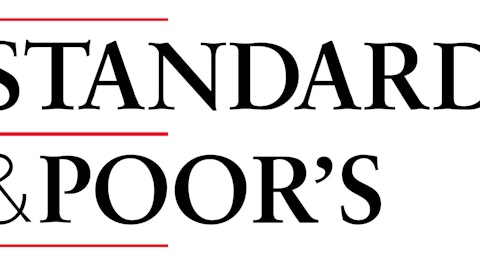A purpose-driven edge
One can see evidence of competitive advantage by looking at Whole Foods’ financials: Same-store sales growth has averaged 5.2% over the last five years and 8.1% over the last three years; gross margins are an industry-leading 35%; and return on capital is a strong 13.8%. But one of Whole Foods’ major competitive advantages lies beyond the numbers in the realm of a harder-to-value yet extremely important intangible aspect of the business, and that is the company’s purpose-driven culture.
Whole Foods has fully embraced the idea of conscious capitalism, and the company is much better for it. Whole Foods invests in its employees, and its happy team members go out of their way to please customers. Happy customers spend more, boosting Whole Foods’ sales and profits, which benefits shareholders. And Whole Foods also helps its local communities by giving a minimum of 5% of its profits every year to a wide variety of nonprofit organizations. In this way, all of Whole Foods’ stakeholders win. In addition, many consumers are becoming more socially conscious and want to patronize businesses that live up to these ideals. Whole Foods fits the bill; it truly is a business that is doing well by doing good.
A passionate and visionary leader
The creator and guardian of that purpose-driven culture is Whole Foods’ co-founder and co-CEO John Mackey. Mackey is unconventional and outspoken, and has had his share of missteps. But he is also a visionary with a strong passion for the business and a track record of long-term value creation. I also like that his nearly $80 million ownership stake in the business — and his $1-per-year salary — aligns his interests well with those of shareholders. Mackey co-founded the company in 1978, and today, he remains the type of leader I like to see at the helm of a Tier 1 enterprise.
Risks
Whole Foods, despite its strengths, is not invulnerable to competition. Retail titan Wal-Mart Stores, Inc. (NYSE:WMT) and large grocers Safeway Inc. (NYSE:SWY) and The Kroger Co. (NYSE:KR) have increased the amount of natural and organic foods that they offer in their stores to better compete with Whole Foods’ offerings. But while these threats are not to be overlooked, I believe that Whole Foods’ relentless focus on product quality has helped it earn a very high level of trust among its customers, which should help shield it from the competition. In addition, Whole Foods is a leader in the conscious capitalism movement, including areas such as treating employees well, which gives it a strong edge in the battle of public perception, particularly in relation to Wal-Mart. I’m more concerned with competition from private companies Wegmans and Trader Joe’s, and I will be watching closely for any signs that Whole Foods’ customers are beginning to defect to one or both of these competitors. But as it stands right now, there’s plenty of room for these smaller grocers to coexist and take share from their larger rivals.

